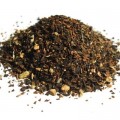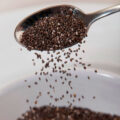
Alcohol is a potent neurotoxin and known carcinogen, a risk factor for dozens of chronic and acute conditions, up to and including psychosis and death. As a depressant chemical agent, it affects every organ in the body and can be extremely addictive under certain conditions.
Researchers say that moderate users of alcohol tend to be slightly healthier than non-drinkers. But it’s equally true that, for many abusers and ordinary users alike, the benefits of quitting alcohol far outweigh the benefits of going three sheets to the wind on the regular. In the United States, a huge number of people stand to gain from quitting drinking for one reason or another. Here’s why:
Lifelong Health
Some of the diseases that result from excessive long-term alcohol use are cirrhosis, cardiomyopathy and peripheral neuropathy. These terms mean your liver, your heart and your nerves could take a big hit from continued drinking in the long-term. Quitting, on the other hand, means you could enjoy a healthy, functioning body as you grow older.
Alcohol abuse causes brain damage. It literally induces the brain to shrink, creating deficits in memory and the ability to learn. There’s also the risk of eye cataracts, congestive heart failure, Alzheimer’s disease, multiple sclerosis, encephalopathy, psychosis, high blood pressure, high cholesterol, acid reflux, hormone dysfunction, osteoporosis, and a variety of infections and cancers.
Moreover, along with cocaine, alcohol has the distinction of being one of the few drugs whose withdrawal syndrome can lead to death. It is a major factor in about half of all ER visits and an estimated 75,000 deaths a year in the U.S.
Immediate Gains
Heavy drinkers often see the health benefits of quitting drinking in a matter of days. Alcohol is known to interfere with normal sleeping and digestive patterns. Abusers who quit can enjoy a healthier gut, stronger immune system, and greater sleep regularity relatively soon after cessation.
Excessive drinking decreases overall nutritional health and tends to lead to certain deficiencies, such as vitamin B1. As a result, those who quit drinking may end up with more energy for their day, better cardiovascular function for exercise, improved brain function, and boosted endogenous stress-relief.
Special Considerations
There are special considerations for many folks. For example, if you have psychological or mental health problems, alcohol abuse tends to directly aggravate these other issues. Quitting drinking could significantly improve your overall quality-of-life by reducing the amount and severity of mental health symptoms.
If you have anger or aggression issues, cutting down on drinking may help you be calmer and control your emotions. If you’re abusive to your partner, quitting alcohol can help you stop. Avoiding alcohol can also be a protective measure against STDs, unwanted pregnancy, dating violence and sexual victimization.
If you take medications, you could eliminate a variety of unwanted side effects, from headaches and dizziness to reduced antibiotic effectiveness. If you are a woman experiencing irregular menstrual cycles, dropping the alcohol could help even them out. Additionally, if you are trying to lose weight, quitting alcohol will help you achieve your weight loss goals by eliminating a major source of empty calories in your diet.
If you are pregnant, quitting is an essential step for avoiding miscarriage, stillbirth, and birth defects. If you are trying to have a baby, you should know that drinking alcohol promotes infertility. If you have diabetes, quitting drinking will help you maintain a better blood sugar balance. If you are trying to quit smoking tobacco, it will be much easier if you are not drinking at the same time. If you have a family history of cancer or alcoholism, you are more likely to see benefits from maintaining long-term abstinence.
Value Added
The benefits of not drinking alcohol are as numerous as the diverse harms that continued drinking can cause. But quitting drinking isn’t just about harm avoidance. It’s a chance to enjoy the many perks of a sober lifestyle.
For example, you won’t get stranded at someone’s house unable to drive your own car back home safely. You won’t have to worry about hangovers, DUIs, and all those empty calories. You’ll enjoy greater mental clarity and agility relative to your drunken peers. Moreover, an alcohol-intensive lifestyle is expensive. By quitting the drug, you can save your drinks money and spend it on something you’ve been wanting for awhile.
For those addicted to alcohol or who have problems with excessive use, the benefits of quitting are most significant. You’ll soon feel better physically and psychologically, and will likely see immediate improvements in your work and social life. The trick is managing what feels like an initial loss until those gains have a chance to develop.











